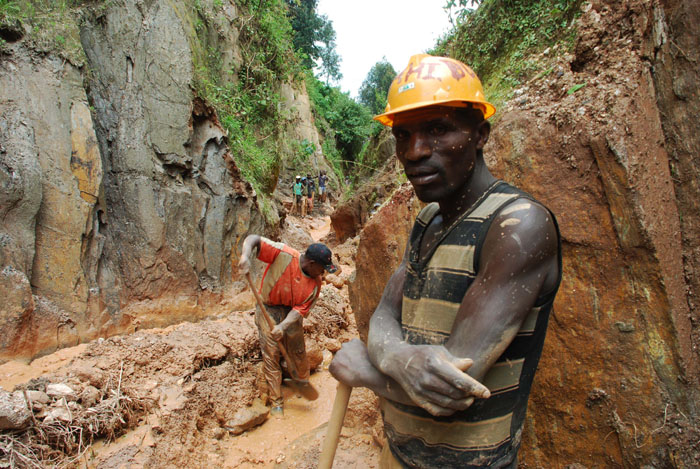
The Catholic Bishops Conference of Congo wrote to the Securities and Exchange Commission, or SEC, last week supporting strong regulations for the Dodd-Frank legislation on conflict minerals and combating the notion that the bill is bad for Congolese livelihoods.
Bishop Nicolas Djomo Lola, writing on behalf of the Catholic Episcopal Conference of the Congo, wrote:
Our brothers and sisters in the eastern Congo need to be able to live without fear and need to have better livelihood options… we firmly believe that the law and your strong rules will help improve the situation in the eastern Congo. … [The Dodd-Frank law] is a concrete expression of solidarity with the women, families and communities who have suffered at the hands of those who destroy our communities to mine our resources.
The bishops argued strongly against the notion that the legislation has made Congolese people starve and should therefore be repealed, noting:
The Church is present with people in mining villages as well as in the towns. We have heard that there has been some controversy over impacts of the law on the Congolese people. From our work and extensive network on the ground, we know that most people in eastern Congo depend on agriculture, not mining, for their livelihood. … As a result of the de facto embargo instituted by some companies, some people are losing the income they made from the mines, while others continue to work.
We know, however, that the meager income they receive comes from difficult and often dangerous jobs… We know that many children are working in these mines… We also know that mining employs a relatively small percentage of people in the eastern Congo. Many more people have been displaced by the violence than receive income from mining.
The bishops therefore concluded that in the medium and long term, livelihoods will improve and suffering caused by war will diminish as the mines are demilitarized—a positive effect for which the bishops give credit to the legislation.
Specifically, the bishops conference called on the SEC to:
- Set clear dates in the near future for when companies would begin reporting;
- Not use a trigger point for when companies should begin reporting;
- Adopt rules that cover all companies and industries;
- Ensure there is no de minimis requirement;
- Require that the information reported by the companies be made readily available to the public, including Congolese people.
The full letter is available as a pdf.
Photo: Miner working in Masisi (Enough/Laura Heaton)

